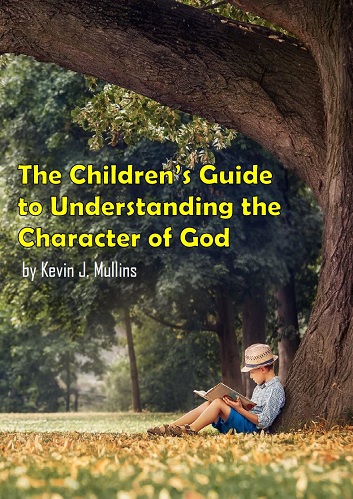Misinformation or Disinformation?
"Misinformation is false or inaccurate information that is spread unintentionally. It is distinguished from disinformation by motive in that misinformation is simply erroneous, while disinformation, in contrast, is intended to mislead." wikipedia
Sometimes it's hard to tell why people spread erroneous information. Do they really intend to mislead, to be dishonest; or do they continue to echo erroneous facts unintentionally? One of my favorite examples of misinformation or disinformation concerns D. M. Canright.
Canright joined the Advent movement in 1859. He became a pastor and evangelist who was very succesful in spreading the Advent message. Canright was a zealous non-trinitarian along with all the other church leaders at the time. In 1887, Canright left the Adventist church.
After some time Canright accepted the Trinity doctrine and wrote a book denouncing many of the same doctrines he had previously believed as an Adventist. His book is titled "Seventh-day Adventism Renounced" (1889). On page 25 of his book we read: “They [Adventists] reject the doctrine of the Trinity.” "Adventism renounced was republished for many years (even today), and some 14 editions. In 1933 W. H. Branson wrote a reply to the accusations of Canright "In Defense of the Faith."
Branson's book is a defensive book designed for "damage control." Now we quote Branson:
"In chapter 1, page 25, paragraph 2 of his work, he [Canright] professes to enumerate the doctrines of the Seventh-day Adventist Church that differ from those held by other evangelical churches. His very first statement of these differences is, 'They reject the doctrine of the Trinity.' Had Mr. Canright said that when he was among them there were some Seventh day Adventists who did not believe the doctrine of the Trinity, it might have been difficult to challenge his statement. But his sweeping indictment, involving, as it does, the whole denomination, is not true today, nor was it true when made. And this Mr. Canright well knew, for in an article which he published in the Review and Herald, the Seventh-day Adventist Church paper, under date of April 12, 1877, he himself had said:
“Do we not all agree that in the providence of God, special light is now being given upon the subjects of the second advent near, the kingdom, the new earth, the sleep of the dead, the destruction of the wicked, the doctrine of the Trinity, the law of God, God's holy Sabbath, etc.? All Seventh day Adventists will agree in these things.” (Branson, 155, 156)
Firstly, notice Branson's claim that "some" Seventh-day Adventists did not believe the doctrine of the Trinity." Who is he echoing?
"Mrs. White did not, during those same early decades, reprove certain erroneous minority positions held by some on the Eternal Verities [non-trinitarianism]...Not once, however, did her own writings share or echo those faulty views. Hers was often a contrasting voice." (Froom, MOD 119)
"...Certain constricted views held by some good men...who nevertheless had but a partial view of truth in the two distinctive areas of the transcendent 'Deity of Christ' and the vast scope of the 'Atonement'..." (Froom, MOD 148)
"Only a few, relatively, were agitating and pressing their personal views against the Trinity and denying the complete Deity of Christ." (Froom, MOD 178)
"The Eternal Verities [Trinitarianism] were coming into their rightful place. God was definitely leading, despite the continuing stubbornness of 'some.'" (Froom, MOD 187)
"At the very outset Waggoner had to firmly meet the persisting, neutralizing Arian view still maintained by some...The Righteousness he was to present in his studies could not come from a constricted, limited, derived Christ." (Froom, MOD 200)
In spite of what Branson and Froom claimed, it was not "some," but all the early Adventists that were non-Trinitarian. Branson now boldly claims that not only Canright himself, but that "all" Adventists agreed on "the doctrine of the Trinity" in 1877. Wouldn't you think that modern Adventist writers would exploit this fact? Wow, that's 11 years before Jones and Waggoner preached (according to Froom's erroneous claim in MOD), righteousnes by the Trinity in 1888. It's 21 years before Mrs. White (according to Moon's erroneous claim), that she "differed sharply" with her brethren; making a "continental divide" with all her Trinitarian statements in "The Desire of ages." Why do Pfandl, Whidden, Moon, Reeve, Hatton and others not quote Branson? Simply because Canright's 1877 statement is saying that all Adventists agreed "the doctrine of the Trinity" was false.
Canright wrote several scathing articles denouncing Trinitarianism. (RH, June 18, 1867; RH, Aug. 29, 1878). Branson would have us believe that Canright denounced the Trinity in 1867, defended the Trinity in 1877, then changed his mind and denounced the Trinity again the very next year (1878). Why didn't Canright reply to Branson's impossible claim? Canright died in 1919 some twelve years before Branson's rebuttle.
Branson continues:
"For many years our theological schools have taught the doctrine of the Trinity very definitely, and for almost as many years it has appeared incidentally in some of our denominational books. For example, we quote this from page 671 of The Desire of Ages, by Mrs. E. G. White, printed in 1898: “Sin could be resisted and overcome only through the mighty agency of the third person of the Godhead..."
This is 1933, and very early in the rise of Trinitarianism within Adventism. During the 1919 Bible conference there was no unity concerning the Trinity, and admittedly different schools taught different views.
Notice how Branson, like many others quote Ellen White, who "incidentally" taught Trinitarianism in "The Desire of Ages." Branson continues:
"In the statement of belief found in the 'Seventh-day Adventist Church Manual,' which sets forth the official discipline and doctrinal position of the denomination, is found this statement on the subject of the Trinity..."
All modern church historians and scholars know the 1931 statement was far from "an official disciple and doctrinal position." Even Froom recognized this fact in MOD.
Branson continues:
"Doubtless there were those of a different opinion when Mr. Canright was an Adventist, as there may be such individuals even today, but a denial of the doctrine of the Trinity cannot be justly charged against Seventh-day Adventists as a body, and never could, for in their earlier history the issue was not raised, and when later on it was raised, it was decided, not by official vote, but by common consent, in flavor of the Bible doctrine of three persons in the Godhead-the Father, the Son, and the Holy Spirit."
What does Branson mean, "the issue was not raised?" Simply, that no Adventist ever said, "Hey, this Trinity doctrine is correct after all, shouldn't we all become Trinitarian?" Kellogg "raised the issue" (in 1903), the issue was raised at the 1919 bible conference and shot down. So when was it raised again? Branson is inferring the 1931 statement of belief. Notice that Froom uses the exact phrase as Branson about the 1931 statement: "...our perfected Fundamental Beliefs statement of 1931, actually accepted by common consent." (MOD 73.) "It was therefore without any formal denominational adoption that this statement of 'Fundamental Beliefs' first appeared in the Yearbook, and was, by common consent, accepted without challenge." (MOD 414, 419)
It's hard to tell the exact relationship between Branson and Froom. We know they were contemporaries who worked together. We know they were both Trinitarian. We know they both wrote books about the Personality of the Holy Spirit. (Froom, The Coming of the Comforter, 1928; Branson, The Holy Spirit, 1933) Finally, we know that they both spread a lot of misinformation or disinformation depending on your perspective. Isn't it strange how the same faulty arguments and reasoning's continue to echo and re-echo through time?





